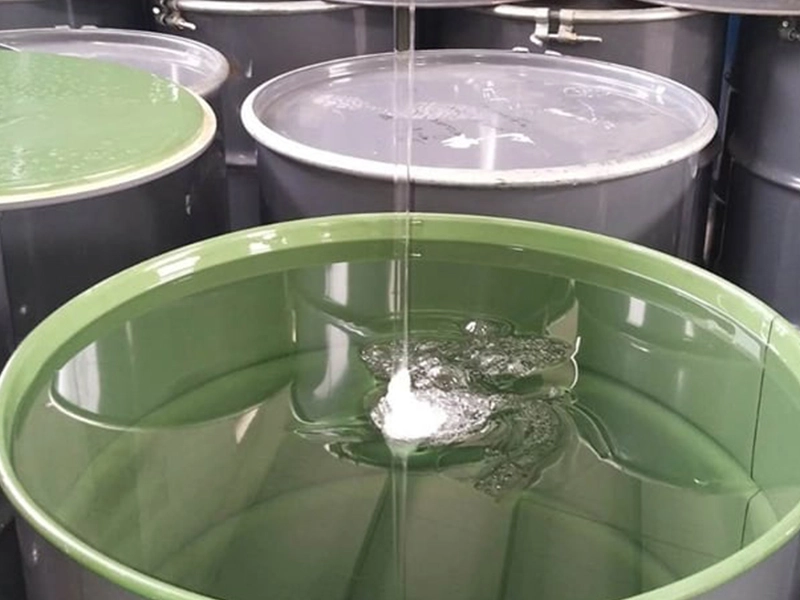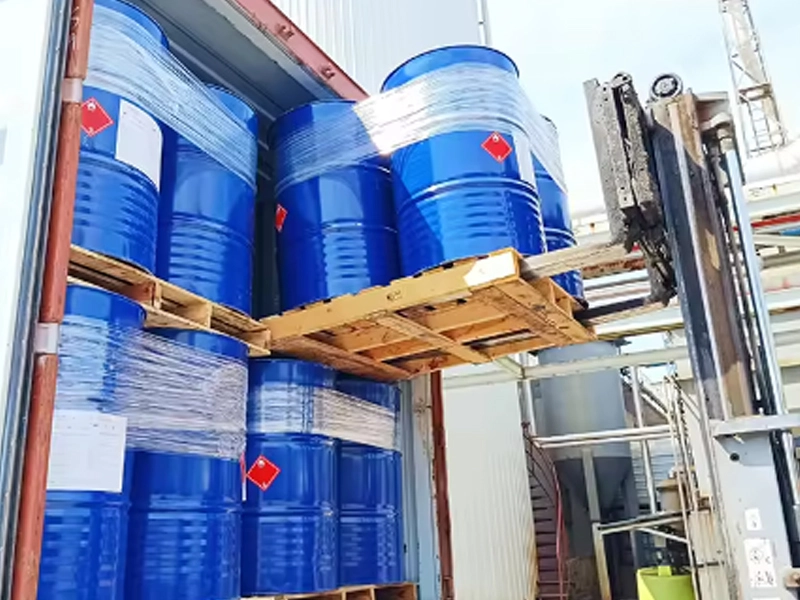Technical Specifications of Liquid Resin:
| Item | Scope | Unit | Test Method |
| Exterior | pale cyan transparent liquid | – | – |
| acid value | 18-24 | mgKOH/g | GB/T 2895-2008 |
| Viscosity, 25℃ | 0.5-0.9 | Pa.s | GB/T 7193-2008 |
| solid content | 64-71 | % | GB/T 7193-2008 |
| Thermal stability, 80°C | ≥24 | h | GB/T 7193-2008 |
| Gelation time, 25℃ | 5-10 | min | GB/T 7193-2008 |
Note: Curing system in GT test: Accelerator (0.6%Co/Naph): 2%;Hardener Nouryon M-50:2%;
Physical Properties of Casting (for reference only):
| Item | Typical Value | Unit | Test Method |
| Exterior | Casting without defects | – | – |
| Barcol hardness | 42 | – | GB/T 3854-2005 |
| Heat distortion temperature | 55 | ℃ | GB/T 1634-2004 |
| elongation at break | 5.5 | % | GB/T 2567-2008 |
| Tensile Strength | 60 | Mpa | GB/T 2567-2008 |
| Tensile modulus | 3100 | Mpa | GB/T 2567-2008 |
| Bending strength | 110 | Mpa | GB/T 2567-2008 |
| Flexural modulus of elasticity | 3200 | Mpa | GB/T 2567-2008 |
Artificial Stone:
Artificial stone, also known as engineered stone, is a man-made material that mimics the appearance and durability of natural stone. It is created by combining natural stone particles, such as quartz, granite, or marble, with a binding agent, like resin, to form a solid surface.
Types of Artificial Stone:
- Quartz Stone: Made from a combination of quartz particles (90-95%) and resin, quartz stone is one of the most popular types of artificial stone. It’s durable, non-porous, and resistant to scratches and stains.
- Acrylic Stone: A blend of acrylic resin and natural stone particles, acrylic stone is flexible and can be molded into various shapes. It’s often used for decorative applications, such as countertops and sinks.
- Polymer Stone: A mixture of polymer resin and natural stone particles, polymer stone is lightweight, durable, and easy to install.
Applications of Artificial Stone:
- Countertops: Artificial stone is a popular choice for kitchen and bathroom countertops due to its durability, low maintenance, and aesthetic appeal.
- Flooring: Artificial stone can be used for flooring, providing a durable and low-maintenance alternative to natural stone.
- Wall Cladding: Artificial stone can be used to create decorative wall cladding, adding texture and visual interest to a room.
Coating Resin:
Coating resin is a type of polymer resin used to create a durable, protective coating on various surfaces, including artificial stone. It’s typically applied in a thin layer to enhance the appearance and performance of the underlying material.
Types of Coating Resin:
- Polyurethane Resin: A versatile coating resin, polyurethane resin is used to create a strong, flexible, and UV-resistant coating.
- Epoxy Resin: Epoxy resin is a strong, chemical-resistant coating often used to protect artificial stone from scratches, stains, and heat damage.
- Acrylic Resin: Acrylic resin is a water-clear coating resin used to create a protective layer on artificial stone, while maintaining its natural appearance.
Applications of Coating Resin:
- Sealing Artificial Stone: Coating resin can be applied to artificial stone to create a protective barrier against stains, scratches, and wear.
- Decorative Coatings: Coating resin can be used to create decorative effects, such as glazes or metallic finishes, on artificial stone surfaces.
- Protecting Natural Stone: Coating resin can also be used to protect natural stone from damage, while maintaining its natural appearance.
Handling and Storage:
This resin contains ingredients which could be harmful if mishandled. Contact with skin and eyes should be avoided and necessary protective equipment and clothing should be worn.
Drums – It is highly recommended that all material is stored at stable temperatures below 25°C (77°F). Avoid exposure to heat sources such as direct sunlight or steam pipes. To avoid contamination of product with water, do not store outdoors. Keep sealed to prevent moisture pick-up and monomer loss. Rotate stock.

